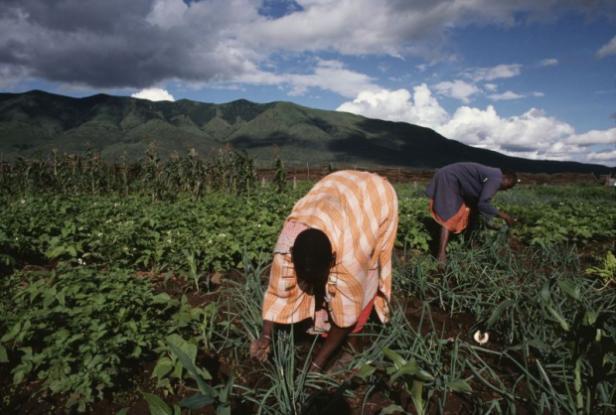
The Kenya Ministry of Agriculture, Livestock, Fisheries & Irrigation (MoALF&I) on 31 October 2018 launched the Kenya Climate Smart Agriculture Implementation Framework 2018-2027 at Kilimo Grounds, Nairobi.
The framework sets guidelines for implementing climate-smart agriculture (CSA) approaches, strategies, practices and technologies in Kenya. The purpose is to promote climate-resilient and low-carbon growth sustainable agriculture that ensures food security and contributes to national development goals.
The framework was produced by MoALF&I in collaboration with the Ministry of Environment and Forestry with support from the Department for International Development (DFID), the United Nations Development Programme (UNDP) and the Food and Agriculture Organization of the United Nations (FAO) through the Integrating Agriculture in National Adaptation Plans project (NAP-Ag), the New Partnership for Africa's Development (NEPAD), the Common Market for Eastern and Southern Africa (COMESA) and the CGIAR Research Program on Climate Change, Agriculture and Food Security (CCAFS).
Having launched the Climate-Smart Agriculture Strategy for 2017-2026 in March 2017, the government continues to make great strides in creating an enabling framework for CSA in Kenya.
In his opening remarks, Dr. Gabriel Rugalema, FAO country representative, pointed out that the launch was timely as the country moves to implement the ‘Big Four’ Agenda—a government declaration focusing on manufacturing, universal healthcare, affordable housing, and food security. The framework will enable the government to work towards achieving its Nationally Determined Contributions (NDCs) and is also in line with global discussions on the United Nations Framework Convention on Climate Change (UNFCCC) Koronivia Joint Work on Agriculture, which calls for implementation.
RELATED NEWS: Promising climate options for Ethiopia, Kenya
RELATED NEWS: Climate change realigns coffee growing zones
RELATED NEWS: Climate change driving African bee to extinction
The framework focuses on four objectives:
- Develop a sustainable system for achieving a coordinated, coherent and cooperative governance of climate resilience and low carbon growth in the agricultural sector;
- Mainstream CSA to support the transformation of Kenya’s agricultural sector into an innovative, commercially oriented, competitive and modern industry that contributes to poverty reduction and improved food security;
- Reduce vulnerability of agriculture systems by cushioning them against the impacts of climate change and reduce GHG emissions where possible; and
- Strengthen communication systems on CSA extension and agro-weather issues.
A plan is nothing without implementation
While launching the framework, Andrew Tuimur, Chief Administrative Secretary of MoALF&I, encouraged stakeholders to continue working with the government to support advocacy and dissemination of the framework to the county level where implementation is set to take place, including capacity building within the counties. Moving forward, the government identified the following areas of support and collaboration:
- Advocacy through the media to encourage political support and investment at national and county levels;
- Translation of the framework to simpler language for dissemination at county level and among local communities; and
- Multi-stakeholder collaboration to support implementation.
At the launch, CCAFS, together with the International Center for Tropical Agriculture (CIAT), showcased successful CSA technologies and practices.
















Comments powered by CComment